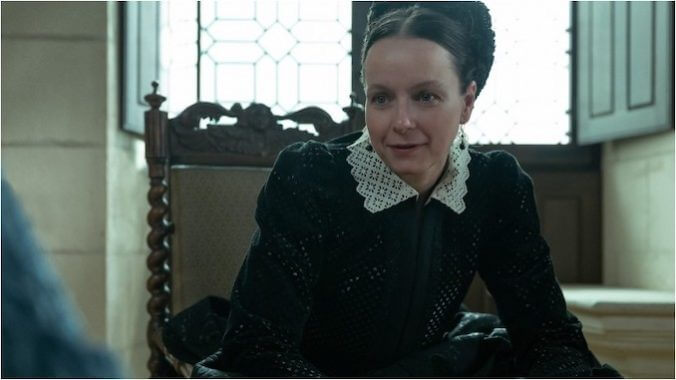Starz’s The Serpent Queen Proves It’s Time for More Historical Stories About Bad Women
Photo: Courtesy of Starz
Starz’s The Serpent Queen is the latest entry in the network’s long line of sumptuous female-focused historical dramas, but it’s the first that tells the story of a woman who isn’t remembered particularly fondly. Even if you don’t know much about the life of Catherine de Medici, you’ve probably heard about what a (literal) witch she was, and you’ve likely never bothered to question whether that particular characterization of her was true. And, in fairness, it would have been incredibly easy for the show to fully lean into that interpretation, giving us a Catherine who reveled in her worst deeds, casting spells, brewing poisons, and committing murder with relative abandon. Give us your worst, girl. No one expects anything better of you anyway.
History loves bad women, after all. Or, perhaps more accurately, our modern-day pop culture loves the idea of bad women in history: sassy rebels who are held up as quasi-avatars of feminism or girlboss power and celebrated for the very aspects of their stories that likely saw them condemned in life. As a society, we love losing ourselves in the exploits of women like this, probably because we want to believe we’ve successfully smashed the patriarchy that held Catherine and so many women like her back. (Or at the very least that we would have valued her for more than her ability to produce male heirs for France.) But in a world where women are still all too often remembered for their worst mistakes—real or imagined—rather than celebrated for their best actions, we’re likely not as far away from Catherine’s reign as we might prefer to believe.
In many ways, The Serpent Queen is simply more honest about this fact than most shows of its ilk, and more forthright about society’s longstanding (and ongoing) unease with the idea of women in positions of power, something which we can sadly still see playing out all over the world today. But rather than privileging one side over another, it charts a third, more human and likely more realistic path, crafting a take on Catherine de Medici—-and even the similarly historically maligned Mary, Queen of Scots, to some extent—that is allowed to sit somewhere uncomfortably in the middle between gleeful devil and misunderstood saint. The show does its best to recontextualize our ideas of who this particular bad woman was, by giving her not just the agency that many women in historical dramas lack, but the self-awareness to purposefully shape the way she’s viewed in the world.
This is a Catherine who knows exactly what people are saying about her and leans directly into their worst imaginings of what that might mean, deliberately building the myth of the Serpent Queen in real time and consciously choosing to be feared rather than loved. (Machiavelli’s famous advice works for women too, apparently.) But while the show’s opening credits may embrace the image of Catherine as a black-clad badass with a literal nest of vipers under her skirts, the story of The Serpent Queen itself actually goes out of its way to complicate its portrayal of a historical figure who often isn’t remembered particularly kindly. And despite the fact that Catherine seems more than willing to allow those around her to believe the worst of her, the show she’s starring in isn’t. At least, not entirely.